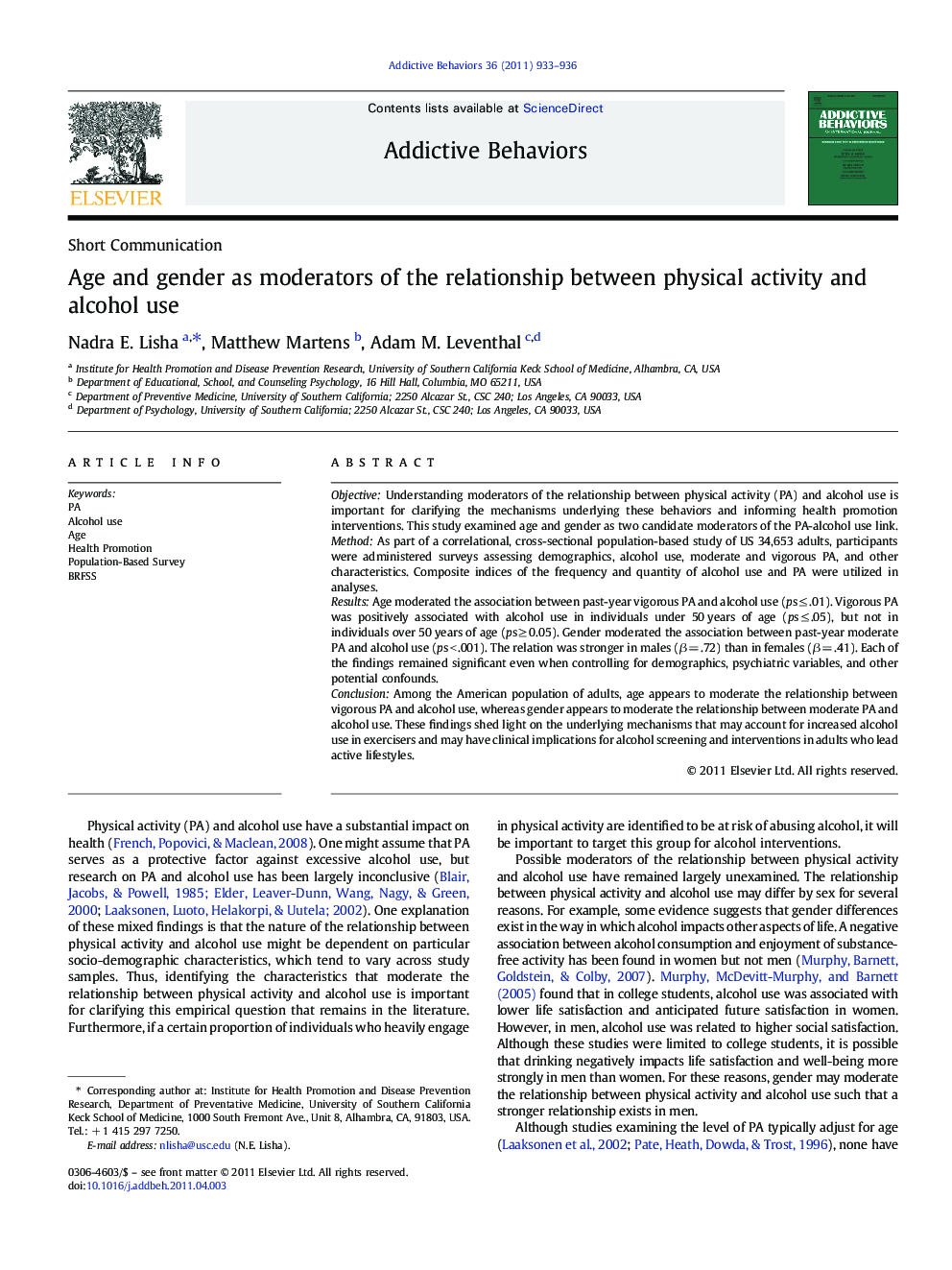| Article ID | Journal | Published Year | Pages | File Type |
|---|---|---|---|---|
| 899751 | Addictive Behaviors | 2011 | 4 Pages |
ObjectiveUnderstanding moderators of the relationship between physical activity (PA) and alcohol use is important for clarifying the mechanisms underlying these behaviors and informing health promotion interventions. This study examined age and gender as two candidate moderators of the PA-alcohol use link.MethodAs part of a correlational, cross-sectional population-based study of US 34,653 adults, participants were administered surveys assessing demographics, alcohol use, moderate and vigorous PA, and other characteristics. Composite indices of the frequency and quantity of alcohol use and PA were utilized in analyses.ResultsAge moderated the association between past-year vigorous PA and alcohol use (ps ≤ .01). Vigorous PA was positively associated with alcohol use in individuals under 50 years of age (ps ≤ .05), but not in individuals over 50 years of age (ps ≥ 0.05). Gender moderated the association between past-year moderate PA and alcohol use (ps < .001). The relation was stronger in males (β = .72) than in females (β = .41). Each of the findings remained significant even when controlling for demographics, psychiatric variables, and other potential confounds.ConclusionAmong the American population of adults, age appears to moderate the relationship between vigorous PA and alcohol use, whereas gender appears to moderate the relationship between moderate PA and alcohol use. These findings shed light on the underlying mechanisms that may account for increased alcohol use in exercisers and may have clinical implications for alcohol screening and interventions in adults who lead active lifestyles.
Research highlights► Clarifies mechanisms of athlete drinking and informs health promotion interventions. ► Study examined age and gender as moderators of physical activity–alcohol use link. ► Physical activity associated with alcohol in under 50 years but not over 50. ► Relation between physical activity and alcohol use stronger in males than females. ► Implications for alcohol screening in adults who lead active lifestyles.
